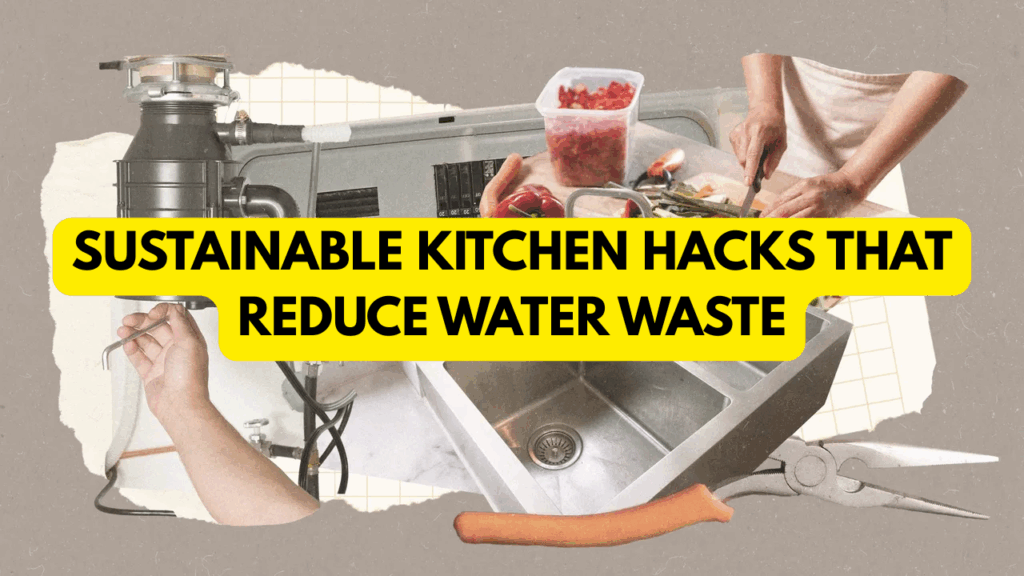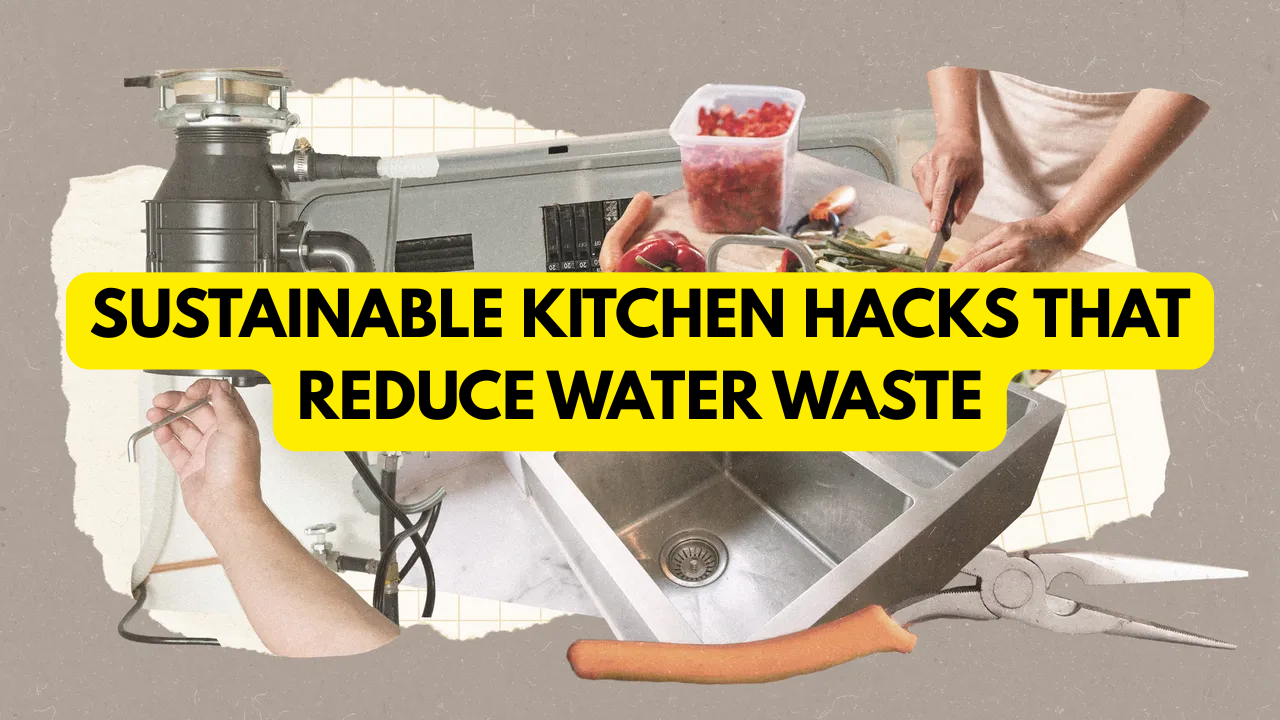
The kitchen is the heart of every home—but it’s also one of the biggest sources of water waste. From rinsing vegetables under running taps to leaving dishwashers half-empty, our daily cooking and cleaning habits quietly consume gallons of water. Luckily, small adjustments in the kitchen can lead to massive savings for both the planet and your utility bills.
This article explores practical, sustainable kitchen hacks that anyone can adopt to reduce water waste without compromising convenience.
Why Focus on Kitchen Water Usage?
- The kitchen accounts for a large share of indoor water consumption in most households.
- Activities like washing produce, cleaning dishes, and cooking can waste water if done inefficiently.
- Making conscious changes in this one space can create long-term savings and reduce environmental impact.
Sustainable Kitchen Hacks You Can Try
1. Wash Produce in a Bowl, Not Under the Tap
Instead of running the faucet continuously, fill a bowl with water to wash fruits and vegetables. Bonus: reuse the leftover water for houseplants or the garden.
2. Use Dishwashers Efficiently
- Always run the dishwasher with a full load.
- Choose eco-mode to cut water and energy consumption by up to 30%.
- Skip pre-rinsing dishes—modern dishwashers are designed to handle food residue.
3. Adopt Two-Basin or Bucket Washing for Handwashing Dishes
If you don’t use a dishwasher, fill one sink with soapy water and the other with rinse water instead of keeping the tap running.
4. Reuse Cooking Water
- Save pasta or vegetable boiling water to make soups, sauces, or even to water plants once cooled.
- This conserves water and adds extra nutrients to soil when reused in gardening.
5. Store Drinking Water in the Fridge
Avoid running the tap until it turns cold. Instead, keep a jug of drinking water in the refrigerator.
6. Compost Instead of Using the Disposal
Garbage disposals require running water to function properly. Composting food scraps saves water and provides nutrient-rich soil.
7. Fix Leaky Faucets Immediately
A dripping faucet may seem minor, but it can waste up to 3,000 gallons of water annually.
8. Choose Water-Efficient Appliances
If replacing kitchen appliances, look for ENERGY STAR-rated dishwashers and water-efficient taps. They use less water per cycle while delivering the same performance.
9. Plan Smart Meal Prep
Defrost frozen food in the refrigerator overnight instead of using running water. This also preserves food quality.
10. Collect “Wait Water”
While waiting for water to heat up, place a pot or jug under the faucet. Use it later for cooking or watering plants.
Table: Kitchen Habits and Water-Saving Alternatives
| Task | Conventional Way | Eco-Friendly Hack | Water Saved |
|---|---|---|---|
| Washing produce | Rinsing under faucet | Wash in a bowl, reuse water | 2–3 gallons |
| Dishwashing | Running tap per dish | Full dishwasher load or two-basin wash | 15–20 gallons |
| Cooking | Discarding boiling water | Reuse for soups or plants | 1–2 gallons |
| Drinking water | Running tap until cold | Store jug in fridge | 2–5 gallons |
| Food disposal | Using garbage disposal | Compost scraps | 3–4 gallons |
| Faucet leaks | Ignoring drips | Fix leaks promptly | 3,000 gallons/yr |
The Bigger Impact of Kitchen Water Savings
- Household bills drop: Efficient dishwashing and leak repairs can significantly cut costs.
- Eco-friendly lifestyle: Reusing cooking water or composting scraps reduces reliance on resources.
- Collective conservation: If every household adopted just three kitchen hacks, millions of gallons of water could be saved globally every day.
Overview Table
| Kitchen Task | Hack | Impact |
|---|---|---|
| Washing produce | Bowl wash + reuse water | Saves gallons & feeds plants |
| Dishwashing | Full load, eco-mode | Cuts water & energy use |
| Cooking water | Reuse pasta/veg water | Adds nutrients to soil |
| Drinking water | Keep jug in fridge | Reduces faucet wastage |
| Food waste | Compost instead of disposal | Saves water + enriches soil |
| Faucet care | Fix leaks quickly | Prevents long-term waste |
Final Thoughts
A sustainable kitchen doesn’t require drastic changes—it thrives on smart swaps and mindful habits. By reusing, repairing, and planning better, we can prevent unnecessary water waste while still enjoying our daily meals and routines. Remember, the smallest choices add up to the biggest differences.
FAQs
Q1: Do dishwashers really save more water than handwashing?
Yes—modern dishwashers use less water per cycle than washing the same load by hand under running taps.
Q2: Is reusing cooking water safe?
Absolutely. Once cooled, it can be reused for soups or to water plants (avoid using salted water for plants).
Q3: What’s the easiest kitchen hack to start with?
Begin with washing produce in a bowl and reusing the water—it’s simple, effective, and instantly reduces waste.

